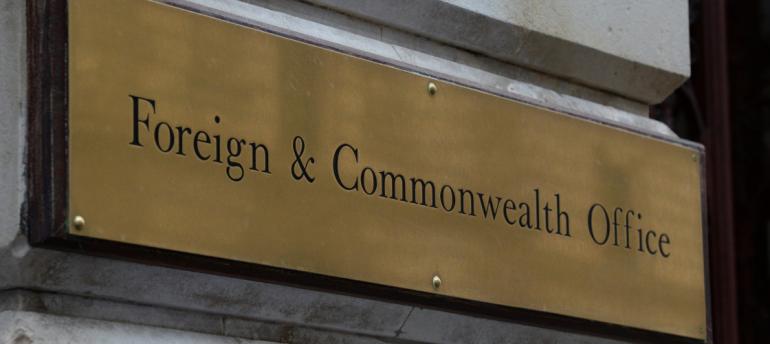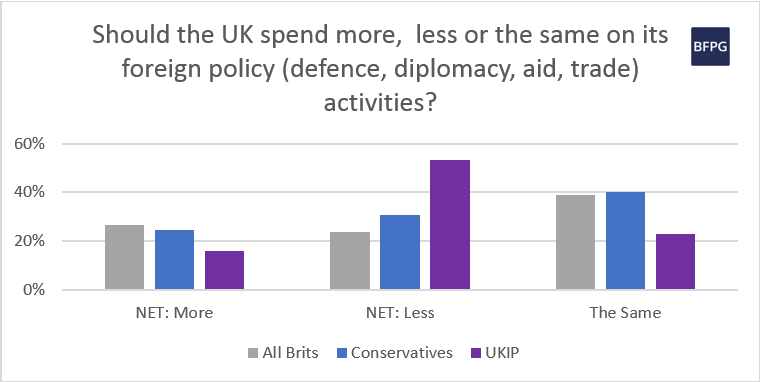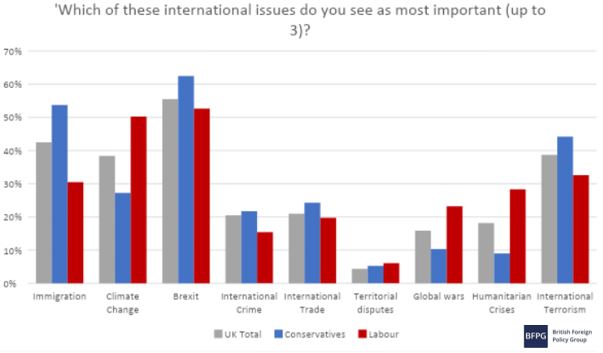
Articles and reports on general UK foreign policy.
The impact of returning UKIP voters on Conservative foreign policy
Sophia Gaston, British Foreign Policy Group, 5 November 2019
According to research from the British Foreign Policy Group, there are five main findings on how Brexit Party/UKIP voters impact Conservative Party foreign policy.
- UKIP/Brexit Party voters are less likely to be interested or knowledgeable about foreign affairs than Conservative voters.
- UKIP/Brexit Party voters are distinguished from Conservative voters by their relatively narrow focus towards international affairs, and distinct amongst all voters in their preoccupation with immigration.
- UKIP/Brexit Party voters are uniquely hostile to multilateral organisations and institutions, and diverge particularly from Conservative voters on these issues.
- UKIP/Brexit Party voters preference defence spending over trade, and actively de-prioritise international aid.
- UKIP/Brexit Party voters want Britain to ‘put its interests first’, condemn military interventionism and are disinterested in the UK leading on democracy and values.

Where do Labour voters stand on foreign policy?
Sophia Gaston, British Foreign Policy Group, 25 October 2019
According to research from the British Foreign Policy Group, there are six main findings on where Labour party voters stand on foreign policy issues.
- Labour voters are less likely to be interested in foreign affairs than Conservatives, and also less inclined to feel knowledgeable about it. They are more likely to be interested than knowledgeable.
- Despite their lower degree of interest in and knowledge of foreign affairs, Labour voters are more likely than Conservative voters to call for a higher level of government investment across a range of areas.
- Labour voters spread their interest in foreign issues across a much greater number of issues than Conservative voters, due to their disproportionate interest in environmental and humanitarian issues.
- Labour voters are twice as likely to want the UK to be seen globally as a non-interventionist nation, rather than as a nation which intervenes to resolve conflicts.
- The EU is the only international institution or multilateral organisation for which more Labour voters support the UK’s membership of than Conservative voters. In every other instance, ie. NATO, Conservative voters are more favourable to multilateralism and international cooperation.
- Labour voters are evenly spread in their desire for foreign policy to be underpinned by economic and strategic interests, or more driven by values – but they are only half as likely overall to choose economic and strategic motivations, compared to Conservative voters.

